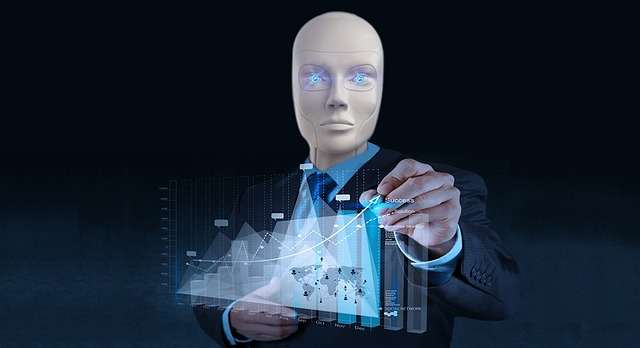# The Future of AI Technology: Innovations That Will Shape Our Lives and Work Environments
Artificial Intelligence (AI) has made remarkable strides over the past decade, transforming industries and redefining the way we interact with technology. As we look to the future, the innovations on the horizon promise to further revolutionize our lives and work environments. This article explores three key areas where AI technology is poised to make a significant impact: the workplace, healthcare, and everyday life.
## AI in the Workplace: Redefining Productivity and Collaboration
In recent years, organizations have increasingly integrated AI tools to enhance productivity and streamline operations. Automation of repetitive tasks is one of the most significant benefits AI brings to the workplace. By taking over mundane activities such as data entry and scheduling, AI allows employees to focus on more strategic and creative aspects of their roles. This shift not only boosts efficiency but also fosters a more engaging work environment.
Furthermore, AI-driven analytics are changing the way businesses approach decision-making. Advanced algorithms can analyze vast datasets, uncovering insights that would be impossible for humans to detect. Companies are leveraging these insights to make informed choices about everything from marketing strategies to product development. As AI continues to evolve, we can expect even more sophisticated analytical tools that will empower organizations to anticipate market trends and respond proactively.
Collaboration is another area where AI is making a mark. Tools powered by AI, such as virtual assistants and smart collaboration platforms, facilitate seamless communication among team members, regardless of their geographical locations. These innovations not only enhance teamwork but also support a more flexible work culture. With remote work becoming increasingly common, AI is set to play a crucial role in bridging the gap between in-office and remote employees, ensuring that everyone remains connected and productive.
## Transforming Healthcare: AI’s Role in Diagnosis and Treatment
The healthcare sector is on the brink of a technological revolution, largely driven by AI advancements. One of the most promising applications of AI in this field is in diagnostics. Machine learning algorithms are being trained to analyze medical images, such as X-rays and MRIs, with remarkable accuracy. These systems can assist radiologists in detecting abnormalities, leading to earlier diagnosis and treatment of conditions like cancer. As AI continues to improve, we can expect it to play an even more significant role in identifying diseases at their earliest stages.
Moreover, personalized medicine is gaining traction thanks to AI. By analyzing genetic data, AI can help healthcare providers tailor treatments to individual patients, optimizing outcomes and minimizing side effects. This shift towards personalized care represents a significant departure from the one-size-fits-all approach that has dominated medicine for decades. As AI technologies advance, the potential for developing targeted therapies will expand, potentially transforming the landscape of chronic disease management.
In addition to diagnostics and treatment, AI is revolutionizing patient care. Chatbots and virtual health assistants are becoming commonplace, providing patients with immediate access to information and support. These AI-driven tools can answer questions, schedule appointments, and even monitor patient symptoms, freeing healthcare professionals to focus on more complex tasks. As the demand for healthcare services continues to grow, AI will be instrumental in ensuring that patients receive timely and efficient care.
## Enhancing Everyday Life: AI in Consumer Technology
AI is not just reshaping industries; it is also transforming our everyday lives. Smart home devices, powered by AI, are becoming increasingly sophisticated, allowing users to control their environments with ease. From smart thermostats that learn user preferences to voice-activated assistants that manage daily tasks, these innovations are enhancing convenience and comfort in our homes. As these technologies become more integrated, we can expect a future where our living spaces are not only more efficient but also more responsive to our needs.
Transportation is another area where AI is making significant strides. The development of autonomous vehicles promises to revolutionize the way we travel. By utilizing AI algorithms to process real-time data from sensors and cameras, self-driving cars can navigate complex environments with minimal human intervention. This technology has the potential to reduce traffic accidents, alleviate congestion, and transform urban planning. As regulatory frameworks evolve and public acceptance grows, we may soon see autonomous vehicles become a common sight on our roads.
Additionally, AI is enhancing our digital experiences. Recommendation algorithms, which analyze user behavior to suggest content, are now ubiquitous across streaming services, e-commerce platforms, and social media. These systems not only improve user satisfaction but also drive revenue for businesses. As AI continues to refine its ability to understand individual preferences, the personalization of digital content will reach new heights, creating a more engaging and tailored online experience.
## Conclusion: Embracing the AI-Driven Future
As we venture into an era dominated by AI technology, the innovations on the horizon hold immense potential to reshape our lives and work environments. From enhancing productivity in the workplace to revolutionizing healthcare and transforming everyday experiences, AI is set to become an integral part of our future. Embracing these advancements will require a commitment to ethical considerations, as well as a willingness to adapt to new ways of living and working.
The journey toward an AI-driven future is not without its challenges. Concerns regarding job displacement, data privacy, and algorithmic bias must be addressed to ensure that the benefits of AI are shared equitably. By fostering collaboration between technologists, policymakers, and society at large, we can navigate these complexities and harness the full potential of AI technology.
Ultimately, the future of AI is a collaborative endeavor that invites us to rethink how we live and work. As we stand on the brink of this transformation, it is essential to remain informed and engaged, ensuring that the innovations we embrace will lead to a more prosperous and equitable society for all.











